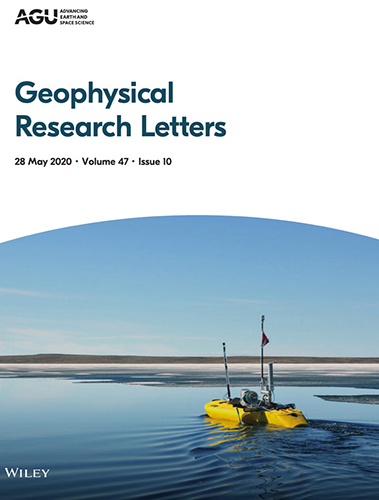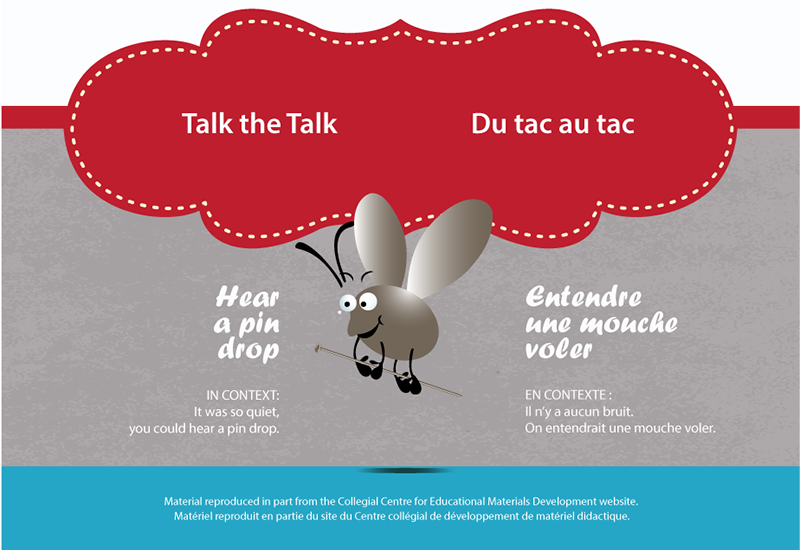- FROM THE TOP
- POLAR’s Strategic Plan and Government of Canada priorities
- Follow up to the Canada School of Public Service event
- POLAR’S PEOPLE
- Northern Youth Abroad interview
- Green house gases in the Arctic
- LEARNING AND PERFORMANCE
- Circumpolar reads
- Inuinnaqtun/Inuktitut word of the week
- Are you ready to Talk the Talk?
- UPDATES
- Key outcomes from Senior Management Committee
- POLAR Events Calendar
- WORKPLACE NOTICES
- NEW Intranet Updates
- Occupational Health and Safety (OHS)
FROM THE TOP
POLAR’s Strategic Plan and Government of Canada priorities
Summary of the May 21 Discussion Session
Thank you to all who participated in the first information and discussion session on the Strategic Plan – the last time I checked the numbers we had just under 50 people participating – after already participating in an all staff meeting – so thank you all again!
For those of you who were unable to participate, here’s a quick summary of the session.
- The session began with a brief background on the development of the plan – including direction from POLAR’s Board of Directors and Senior Management, and engagement sessions, surveys and follow-ups with POLAR staff.
- We then walked through the Strategic Plan, section-by-section, drawing linkages to the annual work plan and our day-to-day work.
- The session ended with a question and answer period. Questions focused on defining terms, and where it might be most appropriate to include further definitions.
The Strategic Plan is clear direction from POLAR’s Board of Directors, informed by the input of POLAR employees.
POLAR’s Strategic Plan is a distillation of many inputs – and it will continue to evolve with our organization and our operating environment.
The Government of Canada’s agenda and POLAR’s Strategic Plan
One of the questions that has come up in almost all of the discussions I’ve had on POLAR’s Strategic Plan is – where does it fit? At the last discussion session we focused on how the Plan fits into POLAR’s internal structures – how it informs the development of the annual Work Plans, performance agreements, and day-to-day work.
The Strategic Plan is a document that requires context to interpret. This means that, when you’re reading the Plan, you may need to consider:
- The latest Speech from the Throne;
- The latest Federal Budget and/or fiscal update;
- Our Minister’s Mandate Letter; and,
- POLAR’s Departmental Results Framework.
In the next session, scheduled for Wednesday August 5, 2020, we’ll chat about how the Plan fits into the broader context of the Government of Canada’s policy and fiscal frameworks. As always, do not hesitate to reach out to me directly if you are looking for guidance on the Strategic Plan, or any of the policy and fiscal frameworks linked above. I’m happy to join your team meetings, or have discussions one-on-one.
Melissa Bolster
Senior Advisor, Planning and Reporting
Follow up to the Canada School of Public Service event
As a follow-up to the July 14 event, Understanding Anti-Black Racism and How to Be an Ally, here are a few resources to complement your learning.
- A guide to Allyship
- Event recording
- A recording of the webcast event will soon be available on the Canada School of Public Service YouTube channel.
- Online Courses
- Websites
- Federal Black Employee Caucus
- Federal Public Sector Labour Relations and Employment Board Decisions: Reeves v. Deputy Head (Department of National Defence)
- COVID-19: Mental health resources to cope
- BLACK ON BLACK with Sarah Onyango, Adrienne Coddett, Jackie Lawrence, Patricia Harewood, Denise Isaac, Joanne John (CHUO 89.1 FM)
POLAR’S PEOPLE
Northern Youth Abroad interview
Northern Youth Abroad is a registered not-for-profit charitable organization that cultivates youth leadership, individual career goals, cross-cultural awareness, and international citizenship amongst youth aged 15-22 from Nunavut and the Northwest Territories. The program strengthens the self-identity and cultural understanding of participants and enhances their participation and success in the school system by providing a life-changing and life-directing experience relevant to the needs and aspirations of northern youth.
Jordan Takkiruq is currently studying science at Mount Allison University in New Brunswick and has been working with the Northern Youth Abroad program this summer. He recently interviewed Senior Policy Analyst, Jennifer Sokol, to learn more about POLAR as an organization and the opportunities available for young northerners interested in science. Read more here.
Green house gases in the Arctic
A POLAR-supported research team has published an article on arctic greenhouse gas research in the May 2020 issue of Geophysical Research Letters, which is one of the top publications in its field. The international collaboration was led by postdoctoral fellow Cara Manning at University of British Columbia, and included support from local community members from Cambridge Bay and the Woods Hole Oceanographic Institution in the United States. Brent Else, an associate professor in University of Calgary’s geography department and a regular user of the CHARS campus facilities, is one of the authors.
Most studies of greenhouse gases in arctic waters are conducted during the summer, in ice-free conditions. This study, in contrast, collected year‐round measurements, in a coastal arctic system near Cambridge Bay. The researchers found that during ice melt, river water contains methane concentrations up to 2,000 times higher than the wintertime methane concentrations in the coastal ocean. This river water flows into the coastal ocean, and when the ice melts the greenhouse gases move into the atmosphere. In this system over 95% of all annual methane emissions from the estuary come from river water. The study brings better understanding of an arctic process that is part of the complex mechanism of global climate change.

This photo of the unusual robotic kayak the scientists used to map the distribution of greenhouse gases graces the journal’s cover.
LEARNING AND PERFORMANCE
Circumpolar reads
The POLAR Communications team has taken staff suggestions from the POLAR XPRESS survey to incorporate fascinating news articles about the circumpolar regions. These articles have been hand-picked to bring you interesting knowledge about the regions and its people.
Renewable energy projects in Canada’s remote communities have doubled in past five years -
The Narwhal, July 10, 2020
Pembina Institute report finds new systems, as well as energy efficiency programs, helped reduce use of diesel for heating and electricity generation by 12 million litres per year.
Yukon University launches study into native plant use for mine remediation -
The Narwhal, July 7, 2020
New research project seeks to build better understanding of how locally grown plants can best be used to reclaim disturbed lands — and it could be good for the environment and the economy.
Inuinnaqtun/Inuktitut word of the week
The Inuinnaqtun/Inuktitut word of the week avinngaq. It means: lemming

It is pronounced: a-veeng-ngaq
Listen to the pronunciations here:
Are you ready to Talk the Talk?

UPDATES
Key outcomes from Senior Management Committee
Here are the key outcomes and decisions from the July 22, 2020, Senior Management Committee discussions:
- The Committee reviewed the latest draft of the rationale for the request to re-profile some Grant & Contribution funds; On July 16th, POLAR’s Board approved that we move forward with the request. POLAR will submit this documentation to Treasury Board Secretariat for their review, and will continue to refine the total amount of funding that we will seek to re-profile into future years. The final submission must be submitted to TBS by July 31.
- The Committee discussed the need to further explore a systematic approach to supporting official language training for POLAR employees, including considerations such as current job requirements vs career development, as well as the resources and mechanisms that are in place and/or available to POLAR. The Committee also recognized the interest in opportunities for staff to learn Inuit languages.
POLAR Events Calendar
You will find below the latest version of the POLAR events calendar for your information.
All travel is currently postponed until further notice.
Please send any calendar updates or additions to Tehjae Tsukada at tehjae.tsukada@polar-polaire.gc.ca
POLAR events calendar: July 24, 2020
WORKPLACE NOTICES
NEW Intranet Updates
The Communications team has added a new section full of templates to the intranet! From a meeting agenda template to an out of office message to a POLAR 101 presentation, you can instantly download POLAR’s easy-to-use templates here.
Occupational Health and Safety (OHS)
POLAR has two Occupational Health and Safety (OHS) Committees: one at the CHARS campus in Cambridge Bay and the other at its Ottawa office. These committees help POLAR protect the health and safety of its employees, as required by the Canada Labour Code. They fulfill an advisory and consultative role, enabling management and employee representatives to exchange information, discuss options, and make decisions to resolve health and safety issues.
OHS committees promote safe and healthy work practices for all employees, address health and safety complaints, and inspect the workplace on a regular basis to identify health and safety hazards, and perform other related activities.
Both the Ottawa office and the CHARS campus have a list of their committee members posted in their OHS information area. Employees who would like access to the list of OHS committee members while working from home can e-mail Renée McCarter.
For more information, visit the Occupational Health and Safety page on the POLAR intranet here.
